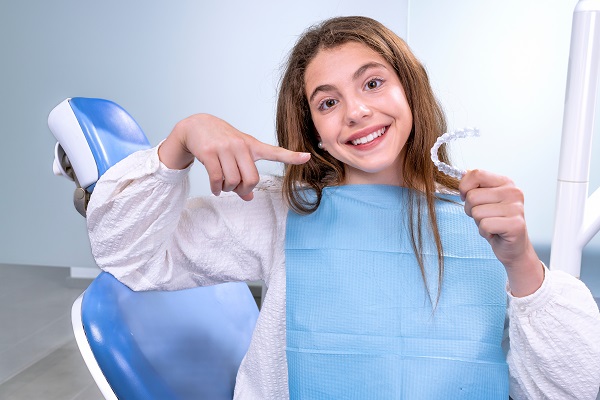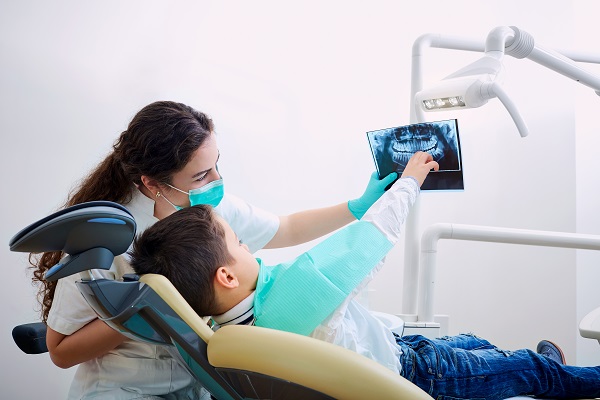A Wayne Orthodontist Shares the Best Foods to Eat With Braces

Now that you have gotten new braces from your Wayne orthodontist, you need to take active measures to care for your teeth. That includes maintaining optimal oral hygiene and eating the right foods. It may take a while to adjust to the new braces, especially when it comes to diet choices. The orthodontist will advise you on the best food to eat with your braces and those you should avoid.
Good foods to eat with braces
There are still plenty of options with braces, but there are also some things to avoid.
Fruits
If a patient recently received braces, they probably will not be excited about biting into anything due to the soreness. After a week or two, when the pain subsides, avoid biting hard fruits like apples or moderately hard fruits such as pear or cantaloupe. Cut such fruits into small parts and chew them with the back teeth. Soft fruits are generally better, especially in the early stages. Good options include nectarines, kiwis, grapefruits, tangerines, bananas, and raspberries.
Vegetables
Vegetables can cause issues with braces, but patients can take certain precautions to prevent them. Steam crunchy veggies properly – this will enable patients to enjoy their usual veggies. Patients can also create smoothies out of spinach and kale, and even include any fruit that used to be their favorite, such as mango or pineapple.
Carbohydrates
Most foods with lots of carbs in them are fairly soft, and they do not pose any risks to braces like carrots and apples. Patients need to be careful of their carb choices though. If they want to eat carbohydrates, a few brace-friendly options are available, such as lasagna, pasta, baked or mashed potatoes, sweet potatoes, oatmeal, soft bread, zucchini bread, polenta, couscous, and muffins. Patients should be cautious of carbs that require teeth to tear, such as a bagel.
Meat and dairy products
This category has plenty of bad options, but good ones also exist. If you have braces, your diet can include fluffy scrambled eggs, salmon, tuna, sliced lunch meat, shredded chicken, ground meat. Patients need to be cautious of options such as bacon, steak, or beef jerky because they tend to be tough or get stuck between the teeth.
Patients can munch freely on soft cheeses such as cream cheese, fresh mozzarella, and Brie. Cheeses like cheddar and Monterey Jack are great options since they are usually cubed or sliced. Patients should avoid hard cheese and cheese mixed with carbs such as pretzels, crostinis, and crackers. Yogurt and cottage cheese are excellent and healthy choices, particularly during the sore, first week of getting braces from the Wayne orthodontist.
Desserts
Ice creams are good, but some flavors can be problematic if you wear braces. Avoid the frozen chocolate chips and sticky caramel. Stick with simple flavors like vanilla, coffee, or chocolate. Opt for baked varieties instead of candies. Choose a cake or a piece of tiramisu over a Snickers bar or skittles. Regardless of the sweet treat eaten, ensure to brush the teeth afterward. Ideally, patients should clean their teeth after every meal, especially when sugar is involved.
Still have more questions?
Follow the guide provided by your Wayne orthodontist and you will not have issues with your braces. Chewing on the wrong food items can cause damage to the brackets and wires, which may require additional visits to the orthodontist for repairs. If you have any question, do not hesitate to contact the dental office.
Request an appointment here: https://www.drsallysong.com or call The Orthodontic Center Of Wayne - Dr. Sally Song at (973) 696-5220 for an appointment in our Wayne office.
Check out what others are saying about our services on Yelp: Read our Yelp reviews.
Recent Posts
Even though braces are common among teenagers, getting them is a new orthodontic experience for every patient. Teens and their parents tend to have many questions about braces and other orthodontic treatments for teens, when to get braces, and what having braces will be like. Here are some of the most common questions orthodontists hear…
The primary goal of early orthodontic treatment is to prevent and fix bite misalignments. Several causes, including genetics, the premature loss of primary (baby) teeth, and harmful oral habits (like thumb sucking) may lead to such anomalies. Orthodontic abnormalities might be congenital or occur during early childhood. Straight teeth can reduce the incidence of dental…
Invisalign® has changed how willing teenagers –– and everyone else –– are to start teeth straightening treatments. It provides an alternative to traditional metal braces that is virtually impossible to detect. Invisalign® treatments work the same way conventional braces work, the aligner trays exert a force on the patient's teeth pushing their teeth into better…
Oral health is foundational to good overall health. Through the help of an orthodontist and bite correction, difficulties with chewing or speaking can be overcome. The inability to ingest food or clearly articulate impacts both physical and mental health. Bite correction has the potential to change the course of an individual’s health and wellness.Changes in…


